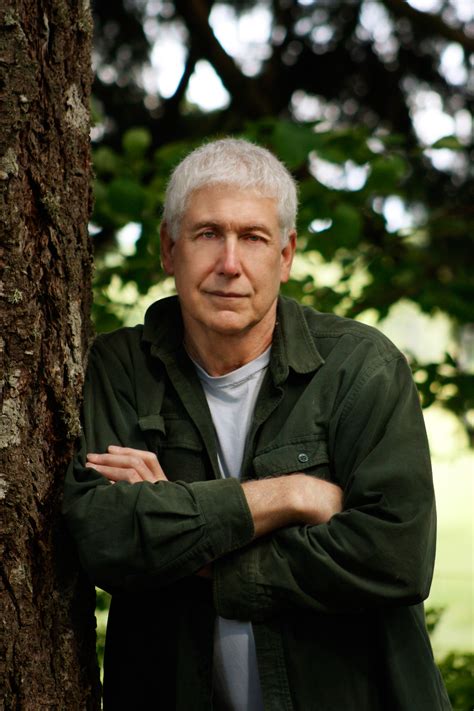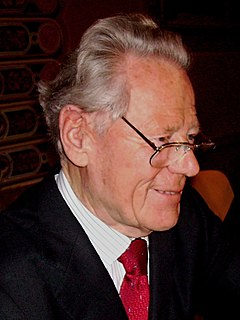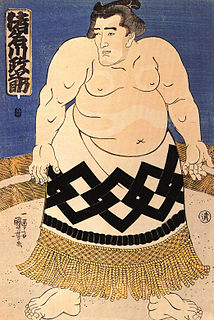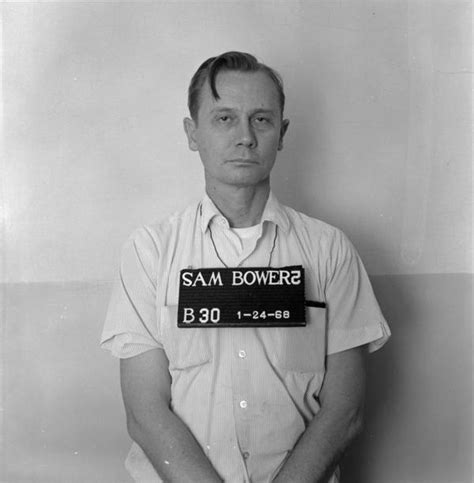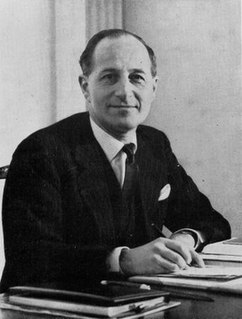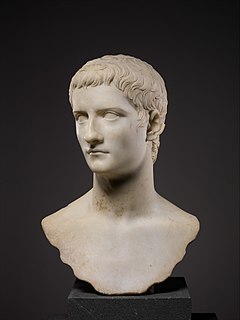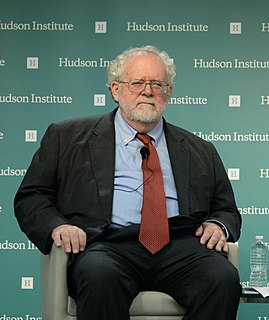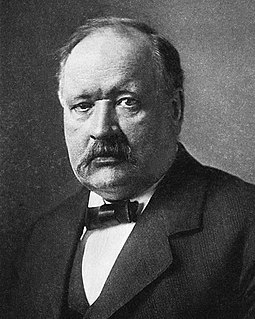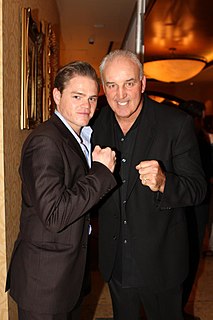Top 1200 Roman Philosophers Quotes & Sayings - Page 2
Explore popular Roman Philosophers quotes.
Last updated on November 24, 2024.
We must ask whether our machine technology makes us proof against all those destructive forces which plagued Roman society and ultimately wrecked Roman civilization. Our reliance - an almost religious reliance - upon the power of science and technology to forever ensure the progress of our society, might blind us to some very real problems which cannot be solved by science and technology.
If you want a symbol of Roman power and strength look no further than the Praetorian or Imperial Guard. We could take this one step further. It was this world of Roman power into which Christ came, in which the Apostles ministered, in which the New Testament authors wrote, and in which Christianity came into being. And to all of those things, Rome stood opposed, violently opposed.
I had no idea what philosophy was until I went to college at UBC. I first read Hume and Plato, so naturally I was under the misapprehension that philosophers are trying to figure out what is true, and that contemporary philosophers are mainly trying to figure out what is true about the mind. Of course Hume and Plato were trying to do that, hence my misapprehension.
Give heed to the cause of the holy Roman Church, mother of all churches and teacher of the faith, whom you by the order of God, have consecrated by your blood. Against the Roman Church, you warned, lying teachers are rising, introducing ruinous sects, and drawing upon themselves speedy doom. Their tongues are fire, a restless evil, full of deadly poison. They have bitter zeal, contention in their hearts, and boast and lie against the truth.
A major cause of the Roman Empire's decline, after six centuries of world dominance was its replacement of stone aqueducts by lead pipes for the transport and supply of drinking water. Roman engineers, the best in the world, turned their fellow citizens into cripples. Today our own "best and brightest," with the best of intentions, achieve the same end through childhood vaccination programmes yielding the modern scourges of hyperactivity, learning disabilities, autism, appetite disorders, and impulsive violence.
In the agreement to rescue Rome [i.e., the Roman Catholic Church's hierarchy] from the predicament of losing its world control to Protestantism, and to preserve the spiritual and temporal supremacy which the popes [had] 'usurped' during the Middle Ages, Rome now 'sold' the [Roman Catholic] Church to the Society of Jesus [i.e., the Jesuits]; in essence the popes surrendered themselves into their hands.
The central problem of our age is not liberalism or modernism, nor the old Roman Catholicism or the new Roman Catholicism, nor the threat of communism, nor even the threat of rationalism and the monolithic consensus which surrounds us. All these are dangerous but not the primary threat. The real problem is this: the church of the Lord Jesus Christ, individually corporately, tending to do the Lord’s work in the power of the flesh rather than of the Spirit. The central problem is always in the midst of the people of God, not in the circumstances surrounding them.
My own experience of growing up as a Roman Catholic in Scotland has led me to fear independence in Scotland. The possibility of Scotland being a kind of Stormont is a real one. I wrote a book recently about Neil Lennon's year of living dangerously and in the course of it I had to revisit some of my own experiences. Of course, most Scottish people are not swivel-eyed, loyalist sectarians but there are a large number of them. A large six-figure number, and if I were living in Scotland as a Roman Catholic I would be worried about that.
The kind of approach I take is different from much of experimental philosophy. Although the experimental philosophers and I are certainly in agreement about the relevance of empirical work to philosophy, a good deal of their work is devoted to understanding features of our folk concepts, and in this respect, at least, I see them as making the same mistake as those armchair philosophers who are interested in conceptual analysis.
We're talking about, essentially, the Roman historians, who wrote Cleopatra into the story mostly so that they could talk about the rise of Rome. And that is one of the problems, of course, in recounting her life. She's only ever apparent to us when there is a Roman in the room, or when her story intersects with the rise of Rome.
It is a dogma of the Roman Church that the existence of God can be proved by natural reason. Now this dogma would make it impossible for me to be a Roman Catholic. If I thought of God as another being like myself, outside myself, only infinitely more powerful, then I would regard it as my duty to defy him.
Confronted with such a variety most philosophers try to establish one approach to the exclusion of all others. As far as they are concerned there can only be one true way- and they want to find it. Thus normative philosophers argue that knowledge is a result of the application of certain rules, they propose rules which in their opinion constitute knowledge and reject what clashes with them.
Philosophy used to be a field that had content, but then 'natural philosophy' became physics, and physics has only continued to make inroads. Every time there's a leap in physics, it encroaches on these areas that philosophers have carefully sequestered away to themselves, and so then you have this natural resentment on the part of philosophers.
The great philosophers of the 17th and 18th centuries did not think that epistemological questions floated free of questions about how the mind works. Those philosophers took a stand on all sorts of questions which nowadays we would classify as questions of psychology, and their views about psychological questions shaped their views about epistemology, as well they should have.
It is frightfully hard to explain to Protestants that if you give Roman Catholics a good job and a good house, they will live like Protestants...they will refuse to have 18 children.... If you treat Roman Catholics with due consideration and kindness, they will live like Protestants in spite of the authoritative nature of their Church.
Obama, who is becoming more and more preacher-like, wants to be the Punisher-in-Chi ef of the Western World, the Avenger-in-Chie f. There is something oddly Roman about him. ... The lesser races must be civilized and they must be punished... Everyone outside the Roman Empire was called a barbarian. Everyone outside Obama’s empire is called a terrorist.
I argue is that philosophers have had a tendency to present a kind of mystical view of the powers of reflection. Unreflective belief acquisition is seen in mechanistic terms, but when philosophers talk about reflection, it is as if reflective processes are not bound by the kinds of limitations which inevitably arise from being embedded within the same causal structure which governs unreflective belief acquisition.
Roman Polanski actually said as much to me once. He had his head in his hands, and I said, "Roman, I've got to tell you, as an actor, seeing the director with his head in his hands... Look, I really want to do what you want me to do." And he went away and he came back, having obviously thought about what I said. And he said, "When my head is in my hands, I'm closing my eyes and trying to remember what I saw in my head, before any of the stuff."
It took time for the church to come to terms with the ignominy of the cross. Church fathers forbade its depiction in art until the reign of the Roman emperor Constantine.... Now, though, the symbol is everywhere: artists beat gold into the shape of the Roman execution device, baseball players cross themselves before batting, and cancy confectioners even make chocolate crosses for the faithful to eat during Holy Week. Strange as it may seem, Christianity has become a religion of the cross--the gallows, the electric chair, the gas chamber, in modern terms.
There is a sort of myth of History that philosophers have.... History for philosophers is some sort of great, vast continuity in which the freedom of individuals and economic or social determinations come and get entangled. When someone lays a finger on one of those great themes--continuity, the effective exercise of human liberty, how individual liberty is articulated with social determinations--when someone touches one of these three myths, these good people start crying out that History is being raped or murdered.
Western civilization is the most successful civilization the world has ever seen. And some of the reasons for that is it's borrowed from other cultures along the way, back to Mosaic law, the Greek age of reason, Roman law and the Roman order of government, and the Republican form of government, by the way that we're guaranteed in our constitution.
When Edward Gibbon was writing about the fall of the Roman Empire in the late 18th century, he could argue that transportation hadn't changed since ancient times. An imperial messenger on the Roman roads could get from Rome to London even faster in A.D. 100 than in 1750. But by 1850, and even more obviously today, all of that has changed.
At first sight nothing seems more obvious than that everything has a beginning and an end, and that everything can be subdivided into smaller parts. Nevertheless, for entirely speculative reasons the philosophers of Antiquity, especially the Stoics, concluded this concept to be quite unnecessary. The prodigious development of physics has now reached the same conclusion as those philosophers, Empedocles and Democritus in particular, who lived around 500 B.C.E. and for whom even ancient man had a lively admiration.
Methodological naturalism gives advice to scientists about what they should include in their theories. There is a second type of methodological naturalism that gives advice to philosophers, which I call "methodological naturalismp." It says that the methods that philosophers should use in assessing philosophical theories are limited to the methods that scientists ought to use in assessing scientific theories.
Philosophy used to be a field that had content, but then natural philosophy became physics, and physics has only continued to make inroads. Every time theres a leap in physics, it encroaches on these areas that philosophers have carefully sequestered away to themselves, and so then you have this natural resentment on the part of philosophers.
I am not sure just what Marx had in mind when he wrote that "philosophers have hitherto only interpreted the world in various ways; the point is to change it." Did he mean that philosophy could change the world, or that philosophers should turn to the higher priority of changing the world? If the former, then he presumably meant philosophy in a broad sense of the term, including analysis of the social order and ideas about why it should be changed, and how. In that broad sense, philosophy can play a role, indeed an essential role, in changing the world.
If moral statements are about something, then the universe is not quite as science suggests it is, since physical theories, having said nothing about God, say nothing about right or wrong, good or bad. To admit this would force philosophers to confront the possibility that the physical sciences offer a grossly inadequate view of reality. And since philosophers very much wish to think of themselves as scientists, this would offer them an unattractive choice between changing their allegiances or accepting their irrelevance.
Fashion is not just about trends. It's about political history. You can trace it from the ancient Romans to probably until the '80s, and you can see defining moments that were due either to revolutions or changes in politics. At the end of the Roman era, there was this whole move against togas, because that was the signifier of the Roman Empire. In the same way, the '60s were a reaction against the '50s and so on. But now we've been feeding on a sort of cadaver. At the moment, we're just endlessly recycling the past.
Discussing the attempts of Augustus' generals to add to the extent of the Roman Empire early in his reign:
The northern countries of Europe scarcely deserved the expense and labour of conquest. The forests and morasses of Germany were filled with a hardy race of barbarians, who despised life when it was separated from freedom; and though, on the first attack, they seemed to yield to the weight of the Roman power, they soon, by a signal act of despair, regained their independence, and reminded Augustus of the vicissitude of fortune.
In regard to the philosophers, if they be true philosophers, i.e., lovers of truth, they should not be irritated that the earth moves. Rather, if they realize that they have held a false belief, they should thank those have shown them the truth; and if their opinion stands firm that the earth doesn't move, they will have reason to boast than be angered.







